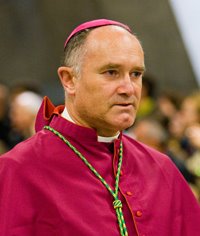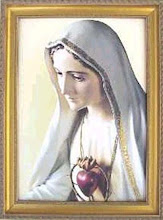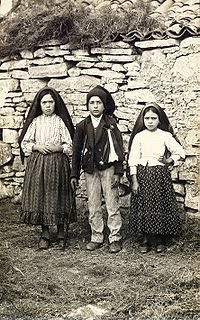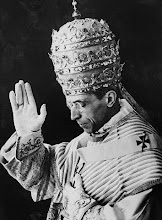Friday, October 18, 2013
Sister Antonia Brenner dies at 86; nun moved into Tijuana prison to tend to inmates
From the Los Angeles Times:
Sister Antonia Brenner, a Beverly Hills-raised mother of seven who became a Roman Catholic nun and moved into a notorious Tijuana prison where she spent more than three decades mending broken lives, easing tensions and dispensing everything from toothbrushes to bail money, has died. She was 86.
Brenner, who had been in declining health, died Thursday of natural causes at the home of her religious order in Tijuana where her fellow sisters had cared for her in her final days, said Christina Brenner, her daughter-in-law.
She was born Mary Clarke in Los Angeles on Dec. 1, 1926, to Irish immigrant parents. Her father grew wealthy running an office supply business, and the family counted Hollywood stars such as Cary Grant among their neighbors. She married and raised four daughters and three sons, all the while becoming deeply involved in charity work.
In 1977, after her children were grown and two marriages had ended in divorce — a source of sadness that she rarely talked about — Brenner gave away her expensive clothes and belongings, left her Ventura apartment and moved to La Mesa penitentiary. She had delivered donations in the past to the prison, each visit filling her with compassion.
"Something happened to me when I saw men behind bars. … When I left, I thought a lot about the men. When it was cold, I wondered if the men were warm; when it was raining, if they had shelter," Brenner told The Times in a 1982 interview. "I wondered if they had medicine and how their families were doing. …You know, when I returned to the prison to live, I felt as if I'd come home."
Small of stature, with blue eyes peeking out from under her traditional black–and-white habit, Brenner cut a strikingly serene presence in the overcrowded prison of 8,000. She lived as any other inmate, sleeping in a 10-by-10-foot cell, eating the same food and lining up for morning roll call.
She would walk freely among thieves and drug traffickers and murderers, smiling, touching cheeks and offering prayers. Many were violent men with desperate needs. She kept extra toilet paper in her cell, arranged for medical treatment, attended funerals.
Guards and inmates alike started referring to her as the prison angel. In the cellblocks she was known simply as "Mama." "There isn't anyone who hasn't heard my lecture on victims," she said in a 2002 Times story. "They have to accept that they're wrong. They have to see the consequences. They have to feel the agony. ... But I do love them dearly."
When prayers didn't work, she took matters into her own hands. On more than a few occasions she broke up fights and quelled brewing riots. Sometimes her presence wasn't enough. In 2008, police opened fire on rioting inmates, killing more than 20. Brenner said she was in the cellblock at the time, but someone had locked the doors to the courtyard where the shooting occurred.
"I didn't know what was happening. That people were being killed," she said in an interview after the siege ended. "I was thinking, all over the world little children have to hear the sounds of guns. It's such a terrible sound."
Brenner was an energetic fundraiser who often visited Southern California to collect food and supplies. Few people said no, though sometimes she didn't leave them much choice.
Father Joe Carroll, who for many years ran the St. Vincent de Paul Village in San Diego, jokingly took to calling Brenner a "thief" for regularly clearing out his charity of donations.
"If I told her she couldn't have it, she'd just be smiling and giggling at me and putting it into her car and leaving," Carroll said in the 2010 documentary "La Mama: An American Nun's Life in a Mexican Prison."
A revered figure in Tijuana, where she counted police chiefs and politicians among her friends, Brenner was honored with the naming of a street after her outside the prison. In the late 1990s, she established her own religious order, the Eudist Servants of the Eleventh Hour. Tijuana Archbishop Rafael Romo said she possessed the qualities of a saint and said her death was a "terrible loss" for the city, the Tijuana newspaper Frontera reported.
Brenner often visited her family in Southern California, where she would regale her more than 45 grandchildren and great-grandchildren with stories about her charity work. "She was a tiny woman with a little fire and a lot of passion," Christina Brenner said. "We called her the Eveready battery. She wouldn't stop. She was always going."
She is also survived by her seven children, James, Kathleen, Theresa, Carol, Tom, Elizabeth and Anthony.
"You walk in her presence and you know you're in a different world," Carroll said. "Rhyme, reason — you can't rationalize why she did it. She has that one-on-one relationship with God."
Sister Antonia Brenner, a Beverly Hills-raised mother of seven who became a Roman Catholic nun and moved into a notorious Tijuana prison where she spent more than three decades mending broken lives, easing tensions and dispensing everything from toothbrushes to bail money, has died. She was 86.
Brenner, who had been in declining health, died Thursday of natural causes at the home of her religious order in Tijuana where her fellow sisters had cared for her in her final days, said Christina Brenner, her daughter-in-law.
She was born Mary Clarke in Los Angeles on Dec. 1, 1926, to Irish immigrant parents. Her father grew wealthy running an office supply business, and the family counted Hollywood stars such as Cary Grant among their neighbors. She married and raised four daughters and three sons, all the while becoming deeply involved in charity work.
In 1977, after her children were grown and two marriages had ended in divorce — a source of sadness that she rarely talked about — Brenner gave away her expensive clothes and belongings, left her Ventura apartment and moved to La Mesa penitentiary. She had delivered donations in the past to the prison, each visit filling her with compassion.
"Something happened to me when I saw men behind bars. … When I left, I thought a lot about the men. When it was cold, I wondered if the men were warm; when it was raining, if they had shelter," Brenner told The Times in a 1982 interview. "I wondered if they had medicine and how their families were doing. …You know, when I returned to the prison to live, I felt as if I'd come home."
Small of stature, with blue eyes peeking out from under her traditional black–and-white habit, Brenner cut a strikingly serene presence in the overcrowded prison of 8,000. She lived as any other inmate, sleeping in a 10-by-10-foot cell, eating the same food and lining up for morning roll call.
She would walk freely among thieves and drug traffickers and murderers, smiling, touching cheeks and offering prayers. Many were violent men with desperate needs. She kept extra toilet paper in her cell, arranged for medical treatment, attended funerals.
Guards and inmates alike started referring to her as the prison angel. In the cellblocks she was known simply as "Mama." "There isn't anyone who hasn't heard my lecture on victims," she said in a 2002 Times story. "They have to accept that they're wrong. They have to see the consequences. They have to feel the agony. ... But I do love them dearly."
When prayers didn't work, she took matters into her own hands. On more than a few occasions she broke up fights and quelled brewing riots. Sometimes her presence wasn't enough. In 2008, police opened fire on rioting inmates, killing more than 20. Brenner said she was in the cellblock at the time, but someone had locked the doors to the courtyard where the shooting occurred.
"I didn't know what was happening. That people were being killed," she said in an interview after the siege ended. "I was thinking, all over the world little children have to hear the sounds of guns. It's such a terrible sound."
Brenner was an energetic fundraiser who often visited Southern California to collect food and supplies. Few people said no, though sometimes she didn't leave them much choice.
Father Joe Carroll, who for many years ran the St. Vincent de Paul Village in San Diego, jokingly took to calling Brenner a "thief" for regularly clearing out his charity of donations.
"If I told her she couldn't have it, she'd just be smiling and giggling at me and putting it into her car and leaving," Carroll said in the 2010 documentary "La Mama: An American Nun's Life in a Mexican Prison."
A revered figure in Tijuana, where she counted police chiefs and politicians among her friends, Brenner was honored with the naming of a street after her outside the prison. In the late 1990s, she established her own religious order, the Eudist Servants of the Eleventh Hour. Tijuana Archbishop Rafael Romo said she possessed the qualities of a saint and said her death was a "terrible loss" for the city, the Tijuana newspaper Frontera reported.
Brenner often visited her family in Southern California, where she would regale her more than 45 grandchildren and great-grandchildren with stories about her charity work. "She was a tiny woman with a little fire and a lot of passion," Christina Brenner said. "We called her the Eveready battery. She wouldn't stop. She was always going."
She is also survived by her seven children, James, Kathleen, Theresa, Carol, Tom, Elizabeth and Anthony.
"You walk in her presence and you know you're in a different world," Carroll said. "Rhyme, reason — you can't rationalize why she did it. She has that one-on-one relationship with God."
Subscribe to:
Post Comments (Atom)











No comments:
Post a Comment